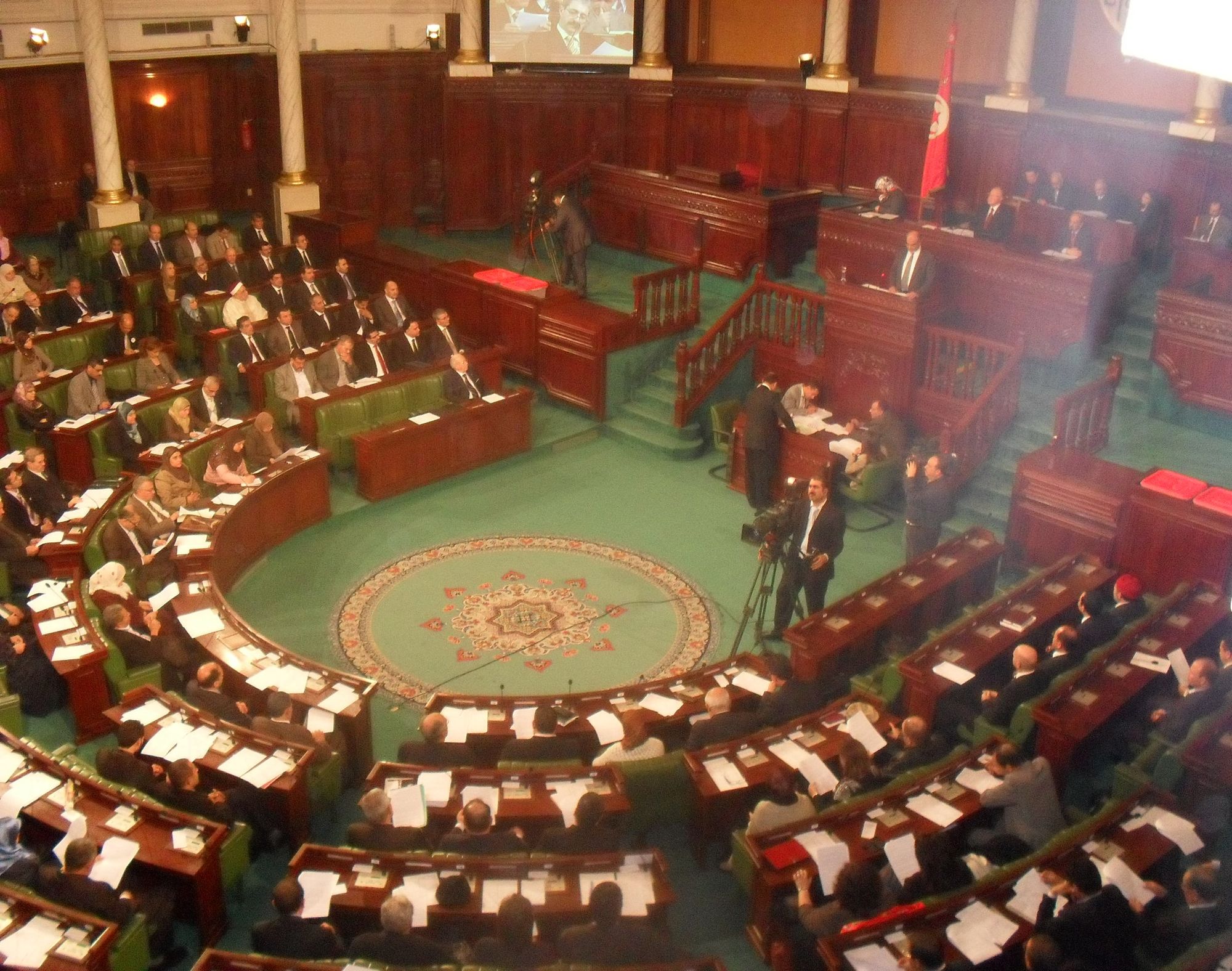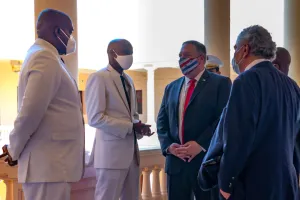On Friday, September 10, Haiti’s chief public prosecutor Bed-Ford Claude invited acting Prime Minister and acting President Ariel Henry to discuss incriminating phone records. These records, according to Mr. Claude, showed phone calls between Mr. Henry and a key suspect in the assassination of then-President Jovenel Moïse, made on the night of the crime. Just yesterday, after Mr. Henry publicly rejected this invitation, Mr. Claude announced he is seeking charges against Mr. Henry in President Moïse’s assassination investigation.
If that’s a little bit confusing, it’s going to get worse, but bear with me. It is believed that the assassination of Mr. Moïse on July 7th was carried out by a group of Colombian mercenaries, but who hired them is as yet unclear. The key suspect allegedly in contact with Mr. Henry, Joseph Felix Badio, is suspected to have been a coordinating figure between the killers and whoever hired them, and so this connection could be damning for Mr. Henry.
The assassination of Mr. Moïse at his home in Port-au-Prince came at a moment of increasing political tensions which have hardly improved since his death. Mr. Moïse was accused of attempting to undermine Haiti’s democracy by enhancing his Presidential powers and embezzling funds from the state treasury. What’s more, Mr. Moïse delayed elections and extended his term as President beyond the constitutionally prescribed period.
Ultimately, such electoral behavior is not uncommon in Haiti. According to Freedom House, “Haiti’s elections are regularly subject to delays, fraud, and violence, and the political system as a whole is undermined by corruption.”
Even as disputed elections may be somewhat business-as-usual in the country, presidential assassinations certainly are not. The political confusion and chaos was made worse by Mr. Moïse’s appointment of Mr. Henry as a new Prime Minister only two days before his death, whose appointment was not properly confirmed at the time of the assassination. As a result, the succession of an interim President has been extraordinarily fraught, with three different people claiming a mandate to the position at different times, including the newly-suspect Ariel Henry, who actually succeeded to the position while holding onto the mantle of acting Prime Minister.
If you’re thinking this sounds like an absolute mess, you’d be exactly right. Now consider the fact that Haiti is looking to schedule new elections amidst all this chaos as well as a referendum on a new constitution which could dramatically reshape Haitian politics and governing structures.
Much of Haiti’s current instability might be chalked up to consistent interference in its affairs by the United States and other Western powers. As Brian Concannon, a human rights lawyer and founder of the Institute for Justice and Democracy in Haiti, told Spectacles, “The US has undermined a strong state in Haiti through a range of policies...On the political front, they actually literally kidnapped the president in 2004, which ended 10 years of democratic development in Haiti.” Explaining the US government’s motives, Mr. Concannon said, “If you look at some of the US interventions, especially the last 10 to 12 years, the most important factor in support for a government is whether the Haitian government is willing to do the US’s bidding rather than whether it is willing to do the voters’ bidding.”
Unfortunately, according to Mr. Concannon, the Biden administration doesn’t look to be changing course from America’s modus operandi with Haiti, but, in a hopeful turn, the Democratic House Foreign Affairs Committee has been vocally critical of Biden’s policy in the country. As we closed our conversation, Mr. Concannon noted, “The damage is not irreparable, but it’s significant enough that there are no short-term transformational solutions for Haiti...What’s gonna have to happen is rebuilding democracy, and it’s gonna take some time. But it’s doable.”
Haiti’s current political situation is about as streamlined as a plate of spaghetti. With a 2/3 vacant Senate, an unclear Presidential succession procedure resulting in multiple people claiming a right to the job, and an acting President who is also the acting Prime Minister who is also accused of assisting in the assassination of the former President, the state of Haiti’s young democracy is both confusing and discouraging.
As far as America bears responsibility for cultivating institutional weakness and instability, we ought to demand better from our elected officials, especially as our treatment of democracies abroad affects democratic health at home. If our elites won’t trust Haitians with democracy, then why would they be expected to trust Americans?
Subscribe to SpectaclesUpdate: This article was edited to correct the vacancy rate of the Senate and the individual appointed PM just before Mr. Moïse's death.




Comments
Join the conversation